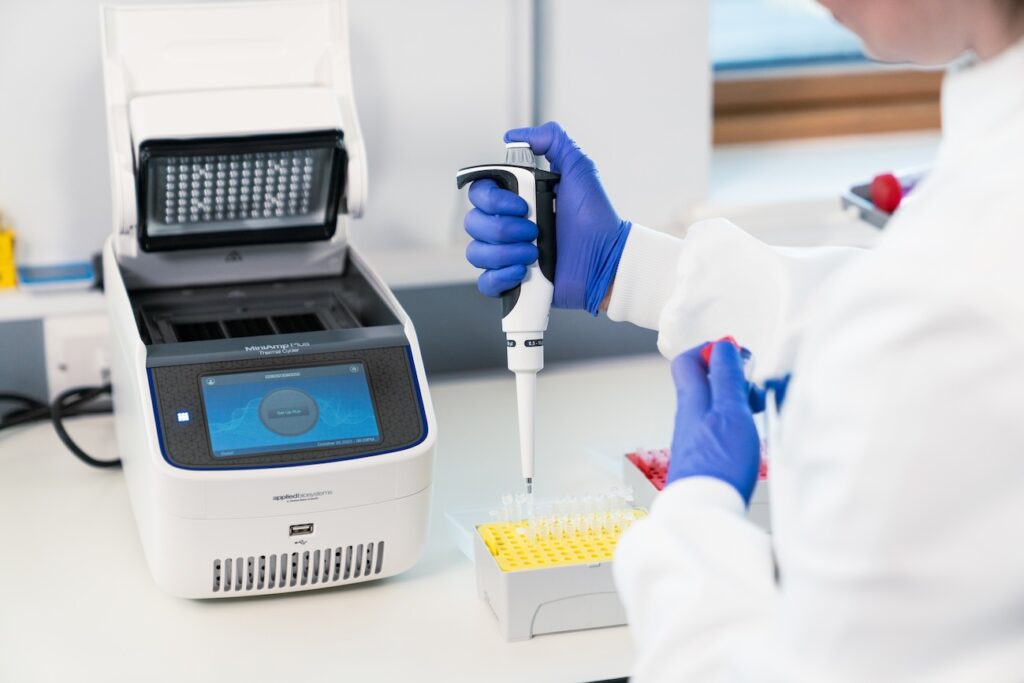
“We have a world-class laboratory and that’s the result of collaboration between Lancashire and Cumbria Institute of Technology, employers, industry experts and the NHS,” says Charlotte Hartley, Curriculum Manager in the Medical Biology department at Lancashire and Cumbria Institute of Technology’s Burnley College site.
The existing biohazard Level 2 lab, kitted out with thousands of pounds worth of leading equipment, was developed using IoT funding and achieved full accreditation from the Royal Society of Biology in 2023 – the only FE college in the UK to be accredited. Plans are underway to build a dedicated Biohazard Level 2 suite of laboratories, which will mean students can work with human tissue culturing, genetically engineered microorganisms and more hazardous materials.
“The funding secured has enabled us to develop the lab to offer microbiology, genetics and qPCR testing, which has been fundamental in increasing the number of students on IoT courses,” says Charlotte.
Students now learn in world-class facilities, in some cases using equipment ahead of those in industry, taught by lecturers who are professionals in their own right. Work goes on with researchers and biomedical scientists and many of these industry experts have compared the IoT facilities to top universities.
Charlotte acknowledges the input of businesses, which has aided the development of the lab. She says: “They’ve come and looked at our lab and recommended how it should replicate the industry. This employer co-creation has been fundamental.”